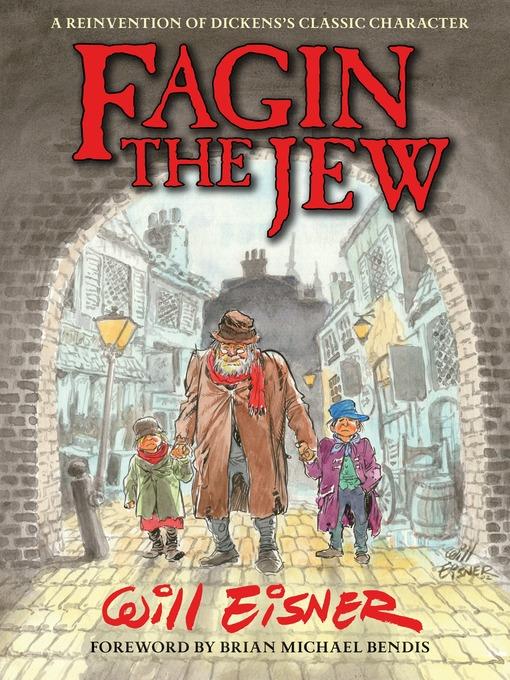
Fagin the Jew
کتاب های مرتبط
- اطلاعات
- نقد و بررسی
- دیدگاه کاربران
نقد و بررسی

November 15, 2013
First published in 2003, this compelling counternarrative is framed as Fagin's apologia to Dickens and folds in plenty of historical background about Jews in Europe and England during the late 19th century. This new edition adds a foreword from writer Brian Michael Bendis, plus a meaty afterword by Canadian journalist Jeet Heer, with additional sources. Once chided for portraying a stereotypical African American, Ebony White, who was the sidekick to main character Denny Colt from The Spirit (1940), comics legend Eisner (A Contract with God) turned in later life to challenging stereotypes, here of the "evil Jew" Fagin in Charles Dickens's Oliver Twist. Eisner's reenvisioned character becomes somewhat like Oliver in that his impoverished background makes him more prone to fall into crime simply to survive. Fagin thereby becomes a more nuanced character with a streak of goodness while still part of a heart-jerking melodrama--though Eisner's skill lies in his sepia brushwork more than in his words. VERDICT Several hundred U.S. libraries already own the earlier version of this classic of literary comics, which is excellent fodder for classrooms and discussion groups of tweens through adults. Larger libraries may want this expanded edition also, and libraries without the previous version should snap this up.--M.C.
Copyright 2013 Library Journal, LLC Used with permission.

November 17, 2003
Eisner, the inventor of the graphic novel format, has been writing and drawing stories about Jewish working-class life since 1978's A Contract with God
. This time, though, he's turned to an unlikely variation on that theme, by rehabilitating Fagin, the trainer of young thieves from Dickens's Oliver Twist
. In Eisner's version, Fagin grows up in London's Ashkenazi communities, forced into crime by cruel fate and crueler prejudice; most of the book is framed as his pre-gallows plea for sympathy to Dickens (with a tacked-on epilogue in which the grown-up Oliver discovers Fagin should actually have inherited a fortune). Eisner has been drawing comics for 65 years, and his illustrations have become even more gorgeously expressive with time. He's done this book in a sepia wash that makes his carefully researched depiction of 19th-century London look both grubby and glorious, and wholly convincing. But the story errs on the side of extreme coincidence and melodrama, especially in the middle, where Eisner's inventive imagining of Fagin's early life and initiation into petty theft gives way to an awkwardly simplified run-through of Dickens's plot. The constant stream of expository dialogue becomes laughable after a while. No one can convey a story through drawn body language like Eisner can (his drawings of Fagin's partner, Sikes, convey an unnerving mixture of physical cruelty and hauteur); it's too bad his words aren't up to the same standard.

























دیدگاه کاربران